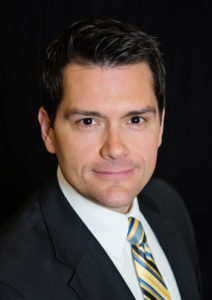Intermountain Healthcare is a Utah-based nonprofit system of 22 hospitals, 180 clinics, a Medical Group with some 1,500 employed physicians and advanced practitioners, a health plans division called Select Health, and other medical services. Intermountain is widely recognized as a leader in transforming healthcare through high quality and sustainable costs.
 Kreg Koford
Kreg Koford
Assistant vice president, supply chain solutions and sourcing, Intermountain Healthcare, Salt Lake City, Utah
Kreg Koford leads strategic sourcing, contract management, supplier credentialing, asset management, program development and supplier collaboration. He manages over $2B in spend across all non-labor categories. He is also responsible for managing Intermountain’s key customer and supplier relationships to develop new sources of value that extend beyond traditional price decrease and margin-shifting activities. He exercises executive leadership over strategic and essential sourcing and contracting, including strategy development and execution, best practice evaluation and implementation, driving savings and value throughout the organization, and developing future supply chain leaders. Prior to joining Intermountain in 2003, he worked in the high-tech sector providing consultation, implementation, and account management to key customer relationships.
JHC: What has been the most challenging and/or rewarding supply-chain-related project in which you have been involved in the past 12-18 months?
Kreg Koford: Leading the Supply Chain Sourcing and Solutions departments through the transformation to a full-scale category management structure. In the past, we had two distinct groups within supply chain procurement department – one to do strategic sourcing, and one to focus on customer strategy and supplier relationship management. We decided to bring them together, so they were incentivized to do the same thing. We instituted a category management structure – something that is ubiquitous in other industries, but not healthcare. It was our attempt to bring together everything from strategy to tactical execution under one roof. It involved changing job roles and responsibilities, including clinician/stakeholder engagement, not just for expense management, but for supply chain management from a business perspective. An example of a category is MSK, or musculoskeletal.
This effort was the culmination of five years of transforming our organization, and it helped us achieve efficiencies and effectiveness that were not previously possible. Through this change, we have been able to better serve our internal customers through integration with their business structures. We partner with them as if we are an extension of their team. We have also been able to establish and mature Intermountain’s relationships with our strategic and key suppliers, bringing innovation and ideation to the right decision-makers. Leveraging the supply chain capabilities of our GPO, Intalere, has rounded out our capabilities to ensure that we have the right people working on the right things at the right time.
JHC: Please describe a project on which you look forward to working in the next year.
Koford: Working with Intalere will be a major priority for the supply chain organization over the next 12 months. Intalere is an extension of the Intermountain team. We are separate organizations, but we work closely together to elevate the health of healthcare. Working to develop new interaction models as well as refining the way we engage with Intalere to create new value in the market will be exciting. The marketplace is competitive, and health systems need to drive new value into their organizations.
JHC: In what way(s) have you improved the way you approach your job or profession in the last 5-10 years?
Koford: I am a big believer in continuous learning. This includes personal development, industry trends, and best practices in all areas. This has been instrumental as I have increased my responsibilities and interaction with internal and external leaders. This has been enhanced by having advocates like Brent Johnson, Joe Walsh and others who have taken an interest in building my talent and capabilities.
JHC: What do you need/want to do to become a better supply chain executive in the coming year(s)?
Koford: With each promotion or new opportunity, one’s individual ability to influence increases. As an individual contributor, you have a high level of influence on your work product. This changes as you lead teams, departments and organizations. I’m working on strengthening my ability to work with internal supply chain teams to influence not only other organizations or departments at Intermountain, but also the healthcare supply chain industry as a whole. We, Intermountain, don’t have a corner on the market of all great ideas, but we do have some really good ones. I feel obligated to share what we are learning and doing with those who will listen, to ultimately help those that we serve live the healthiest lives possible.
